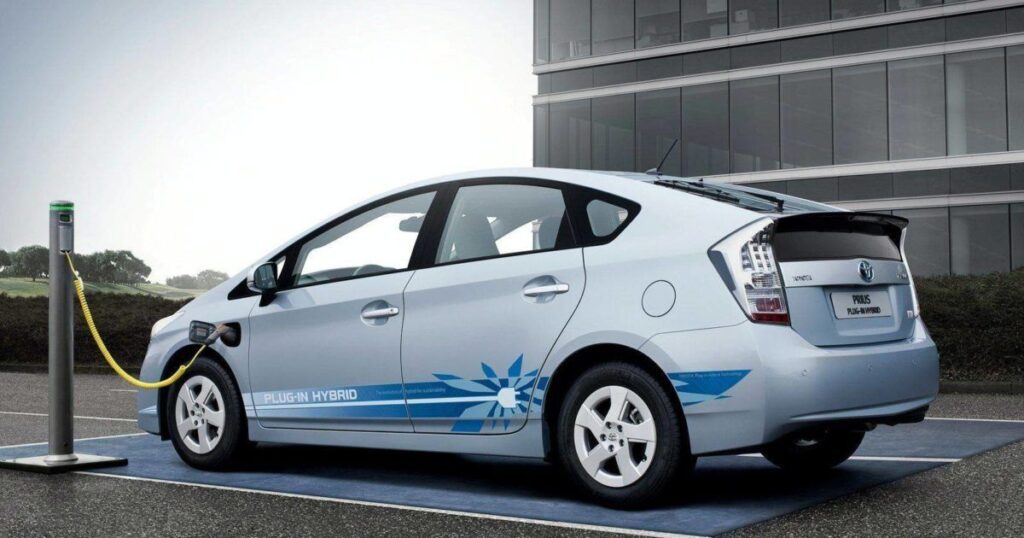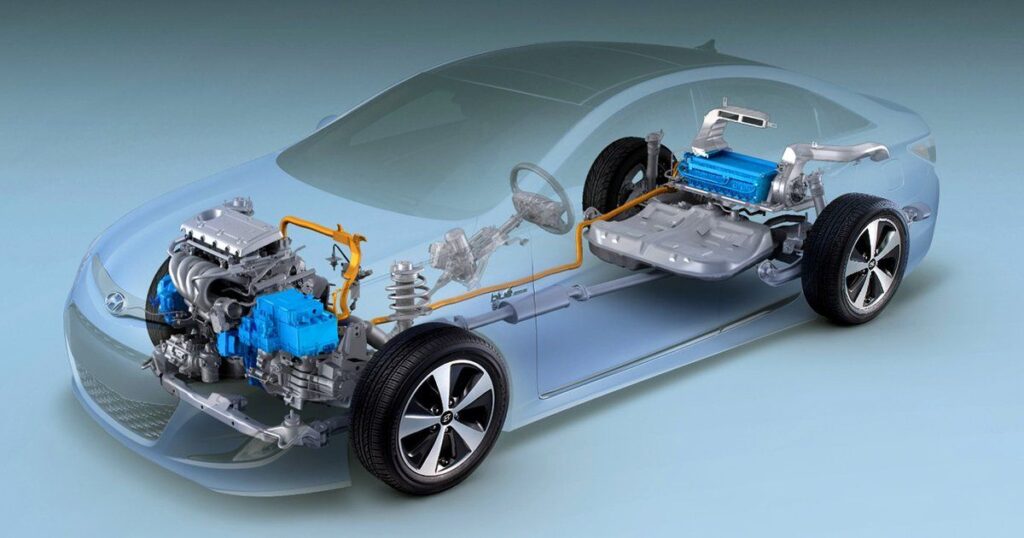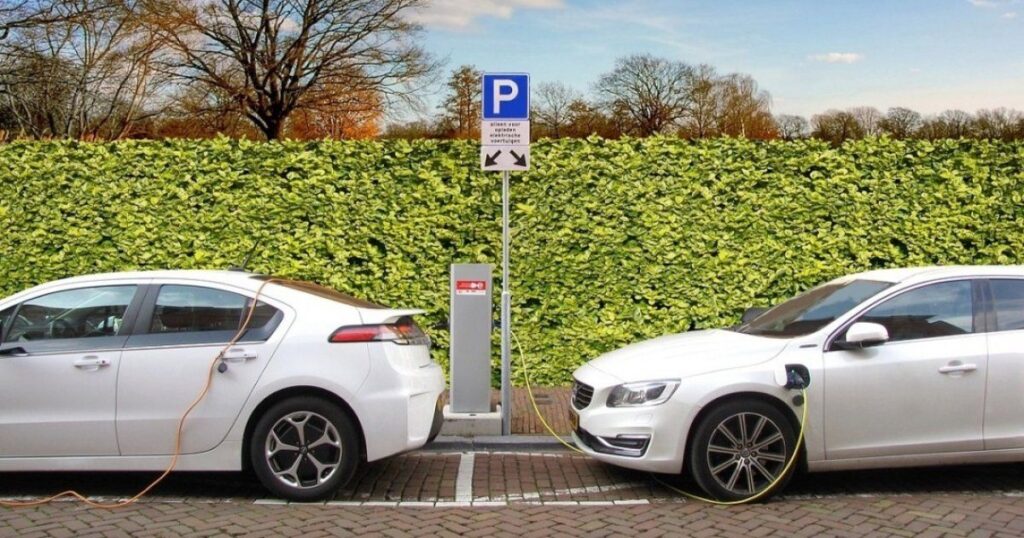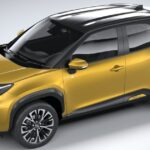Hybrid cars have become increasingly popular due to their eco-friendly nature and efficiency. The choice of driving a hybrid car can lead to many advantages for drivers and the environment.
The benefits of driving a hybrid car extend beyond just saving money on fuel. It also includes reducing emissions and promoting better driving habits. It is clear that hybrid cars are not only good for the driver but also for the environment.
The Environmental Impact Of Hybrid Cars
The impact of driving a hybrid car is significant when it comes to reducing pollution. Hybrid cars combine a gasoline engine with an electric motor, which lowers emissions.
- Reduced Carbon Emissions: The use of electric power decreases the reliance on fossil fuels, resulting in fewer greenhouse gases.
- Lower Air Pollution: Hybrid vehicles contribute less to air pollution than traditional gasoline cars.
- Preserving Natural Resources: Using less fuel helps conserve natural resources and reduce dependency on oil.
The combination of electric and gas power in hybrid cars offers an efficient solution to environmental challenges. It shows how hybrids can play a crucial role in combating climate change.
The Fuel Efficiency Of Hybrid Cars
It is known that hybrid cars are more fuel-efficient compared to conventional vehicles. They use both gasoline and electric power, providing drivers with a way to save money on fuel.
- Extended Mileage: Hybrid cars offer higher miles per gallon, making long trips more affordable.
- Smart Energy Use: The electric motor kicks in when the car is idling, reducing fuel consumption.
- Regenerative Braking: The car charges the battery when braking, improving efficiency.
The smart design of hybrids ensures that energy is used wisely, making them a cost-effective option for many.
The Cost-Effectiveness Of Hybrid Cars

The cost benefits of driving a hybrid car go beyond just fuel savings. There are other financial incentives that make hybrids a wise choice for drivers.
- Tax Incentives: Many governments offer tax credits or rebates for purchasing hybrid vehicles.
- Reduced Maintenance Costs: Hybrid cars often have fewer mechanical issues due to the use of electric motors.
- Resale Value: Hybrids tend to have a higher resale value, as more people look for fuel-efficient cars.
The financial rewards of owning a hybrid car make it a smart long-term investment for individuals looking to save money.
The Quiet Operation Of Hybrid Cars
The noise level of hybrid cars is much lower compared to traditional gasoline vehicles. The use of electric power results in a smoother, quieter ride.
- Reduced Noise Pollution: Lower noise levels contribute to a peaceful environment, especially in urban areas.
- Smoother Driving Experience: Electric motors operate quietly, enhancing the overall driving experience.
- Ideal for City Driving: The silent operation of hybrids makes them perfect for congested city roads.
The quietness of hybrid cars not only benefits drivers but also reduces noise pollution in communities.
The Enhanced Performance Features Of Hybrid Cars
The design of hybrid vehicles combines the benefits of gasoline and electric power, leading to enhanced performance.
- Instant Torque: Electric motors provide instant power, allowing for quicker acceleration.
- Improved Stability: Hybrids are built with advanced technologies, such as regenerative braking and stability control systems.
- Reliable Power: The combination of gasoline and electric power ensures consistent performance.
It is clear that hybrid cars offer more than just fuel efficiency; they also deliver a powerful and stable driving experience.
The Accessibility Of Charging Stations
The growing network of charging stations makes hybrid cars convenient for daily use. The availability of charging options continues to expand, making it easier for drivers to keep their hybrids powered.
- Public Charging Points: Many cities offer public charging stations, making it easy to charge the electric component of hybrids.
- Home Charging Options: Drivers can install home chargers, providing convenience and reducing trips to fuel stations.
- Increased Infrastructure Investment: Governments and companies are investing in charging infrastructure to support the growing number of hybrid vehicles.
The accessibility of charging stations supports the practical use of hybrid cars in urban and suburban areas.
The Reduced Dependency on Fossil Fuels
The technology behind hybrid cars aims to reduce dependency on fossil fuels. This is crucial for both economic and environmental reasons.
- Alternative Energy Sources: Hybrids use electric power, which is renewable and cleaner than fossil fuels.
- Lower Fuel Costs: By reducing the reliance on gasoline, hybrids help drivers save money.
- Contribution to Energy Security: Using less oil makes countries less dependent on foreign fuel supplies.
The shift toward hybrid cars reflects a growing commitment to finding sustainable energy solutions.
Technological Advancements in Hybrid Cars

The advancements in hybrid technology are significant, offering drivers modern features that enhance safety and convenience. Many hybrids come with advanced GPS and navigation systems to improve driving efficiency.
Hybrids often include lane-keeping assistance, adaptive cruise control, and collision warning systems. Some hybrid models feature semi-autonomous driving technologies for safer and stress-free trips. The integration of modern technology into hybrid cars provides an enhanced driving experience.
Low Maintenance Requirements Of Hybrid Cars
The maintenance of hybrid cars is generally lower compared to conventional vehicles. The combination of electric and gasoline power reduces wear and tear.
- Fewer Engine Issues: Electric motors have fewer moving parts, which lowers the risk of breakdowns.
- Less Frequent Oil Changes: Hybrids often require fewer oil changes due to the electric motor’s assistance.
- Extended Battery Life: Modern hybrid batteries are built to last for years, reducing the need for replacements.
It becomes evident that hybrid cars are designed to minimize maintenance needs, saving drivers time and money.
The Incentives For Hybrid Car Owners
Owning a hybrid car can come with various incentives from governments and organizations. These benefits encourage the adoption of eco-friendly vehicles.
- Tax Credits: Drivers may receive tax benefits for purchasing a hybrid vehicle.
- Access to Carpool Lanes: In some cities, hybrid cars are allowed to use carpool lanes, reducing travel time.
- Discounted Parking Fees: Some places offer reduced parking fees for hybrid vehicles.
The incentives available for hybrid car owners provide extra motivation to switch to more sustainable options.
The Availability Of Different Hybrid Models
The variety of hybrid models available gives consumers the option to choose a vehicle that meets their specific needs. Ideal for city driving and daily commutes. Suitable for families who need more space and power.
For drivers seeking both performance and eco-friendliness. The availability of multiple hybrid options ensures that there is a suitable model for every type of driver.
The Contribution To Sustainable Development

Driving a hybrid car is a step towards sustainable development. It aligns with global efforts to reduce carbon emissions and promote green energy.
- Lower Carbon Footprint: Hybrid cars reduce emissions, contributing to cleaner air.
- Support for Renewable Energy: The integration of electric power supports the use of renewable energy sources.
- Eco-Friendly Transportation Solution: Hybrids represent a move toward greener transportation options.
The shift to hybrid cars shows a commitment to protecting the environment and supporting sustainable practices.
Long Term Benefits Of Owning A Hybrid Car
The long-term benefits of hybrid cars go beyond immediate savings. Investing in a hybrid car can provide advantages for years to come. Hybrids save money on fuel and maintenance over time.
The reduced emissions contribute to a healthier planet for future generations. The advancement of hybrid technology shows a commitment to long-term sustainability. The overall advantages of hybrid cars prove their value as a lasting investment.
Frequently Asked Questions
What is the main benefit of driving a hybrid car?
The main benefit of driving a hybrid car is fuel efficiency. Hybrids use both gasoline and electric power, which helps save fuel and reduces emissions.
Are hybrid cars better for the environment?
Yes, hybrid cars are better for the environment. They produce fewer emissions and use less fuel, which reduces pollution and conserves natural resources.
Do hybrid cars require special maintenance?
Hybrid cars typically require less maintenance than conventional vehicles. The electric motor reduces wear and tear, leading to fewer mechanical issues.
Are there financial incentives for owning a hybrid car?
Yes, many governments offer tax credits and rebates for hybrid car owners. Other benefits may include access to carpool lanes and discounted parking fees.
Conclusion
The benefits of driving a hybrid car are extensive, ranging from environmental impact and fuel efficiency to financial incentives and technological advancements. Hybrid vehicles provide a sustainable transportation solution that meets the needs of modern drivers while contributing to a healthier planet.

Hello, Ride here I’m excited to share everything about hybrid cars. We provide helpful Tips And guide about hybrid cars.











